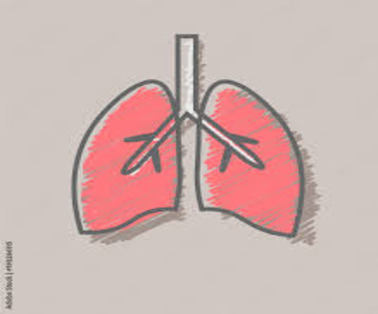Tamil Nadu has pioneered an initiative across the State to reduce the mortality rate among people with tuberculosis named: TN-KET (Tamil Nadu Kasanoi Erappila Thittam) meaning TB death-free project.
What Is TN-KET Initiative?
- The program is implemented by Tamil Nadu government with the support of Indian Council of Medical Research- National Institute of tuberculosis research (ICMR-NIRT)in Chennai and the WHO India.
- The project began in April 2022 in 2,500-odd public healthcare facilities that diagnosed TB in 30 districts
- Nearly 70% of all TB deaths among notified TB patients take place in the first two months after diagnosis.
- In Tamil Nadu, thanks to TN-KET, deaths within two months of TB diagnosis, referred to as early TB deaths, have reduced from more than 600 in April 2022 to less than 350 in December 2022.
- Also, the average time to death after diagnosis doubled from less than 20 days before April to 40 days in July 2022.
Features Of TN-KET Initiative
- Differentiated TB Care: This is at the heart of the initiative, which aims at assessing whether people with TB need ambulatory care or admission in a health facility to manage severe illness at the time of diagnosis.
- Radiological assessment: The guidelines require comprehensive assessment of 16 clinical, laboratory and radiological parameters.
- Triage of assessment: The preliminary assessment of patients based on just three conditions — very severe undernutrition, respiratory insufficiency, and inability to stand without support — was found to be feasible for quick identification at diagnosis.
Achievement Of TN-KET Initiative
- The TN-KET initiative has already achieved the initial target of 80% triaging of patients, 80% referral, comprehensive assessment and confirmation of severe illness, and 80% admission among confirmed
- In December 2022, a 90%-90%-90% goal was reached at State level
- The State’s target is to achieve 90%-90%-90% at each district
Tuberculosis
- TB is caused by a bacterium called Mycobacterium tuberculosis, belonging to the Mycobacteriaceae family consisting of about 200 members.
- In humans, TB most commonly affects the lungs (pulmonary TB), but it can also affect other organs (extra-pulmonary TB).
- TB is a very ancient disease and has been documented to have existed in Egypt as early as 3000 BC.
- Most people who develop the disease are adults
- TB is preventable and curable
Types of Tuberculosis
Pulmonary TB: TB that affects the lungs (pulmonary TB) is the most contagious type, but it usually only spreads after prolonged exposure to someone with the illness. In most healthy people, the body’s natural defence against infection and illness (the immune system) kills the bacteria and there are no symptoms.
Latent TB: Sometimes the immune system cannot kill the bacteria, but manages to prevent it spreading in the body. You will not have any symptoms, but the bacteria will remain in your body. This is known as latent TB. People with latent TB are not infectious to others.
Active TB: If the immune system fails to kill or contain the infection, it can spread within the lungs or other parts of the body and symptoms will develop within a few weeks or months. This is known as active TB. Latent TB could develop into an active TB disease at a later date, particularly if your immune system becomes weakened.
Transmission Of Tuberculosis
TB is spread from person to person through the air. When people with lung TB cough, sneeze or spit, they propel the TB germs into the air.
Symptoms Of Tuberculosis
Common symptoms of active lung TB are cough with sputum and blood at times, chest pains, weakness, weight loss, fever and night sweats.
India’s Initiatives To Eliminate TB

World Tuberculosis (TB) Day
- It is observed on 24th March to spread awareness about the disastrous health, social, and economic consequences of TB and to take efforts to end the TB epidemic globally.
- On this day in 1882, Dr. Robert Koch announced the discovery of a Mycobacterium tuberculosis that causes TB and his discovery opened the way towards diagnosing and curing this disease.
- The theme of World TB Day 2023 – Yes! We can end TB!
- It aims to inspire hope and encourage high-level leadership, increased investments, faster uptake of new WHO recommendations, adoption of innovations, accelerated action and multisectoral collaboration to combat the TB epidemic.
To Download Monthly Current Affairs PDF Click here
Click here to get a free demo
Everything About CLAT 2025



